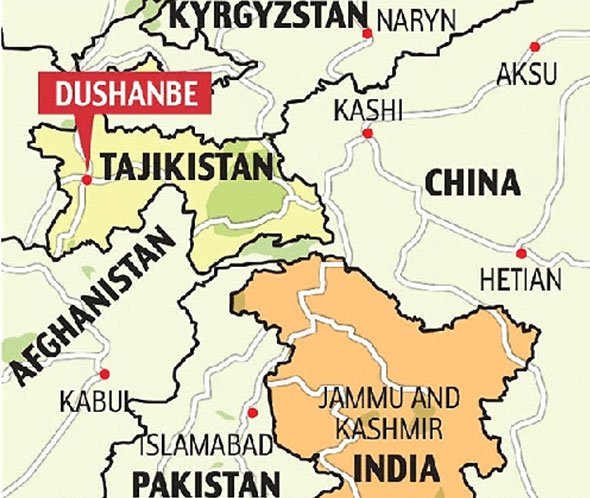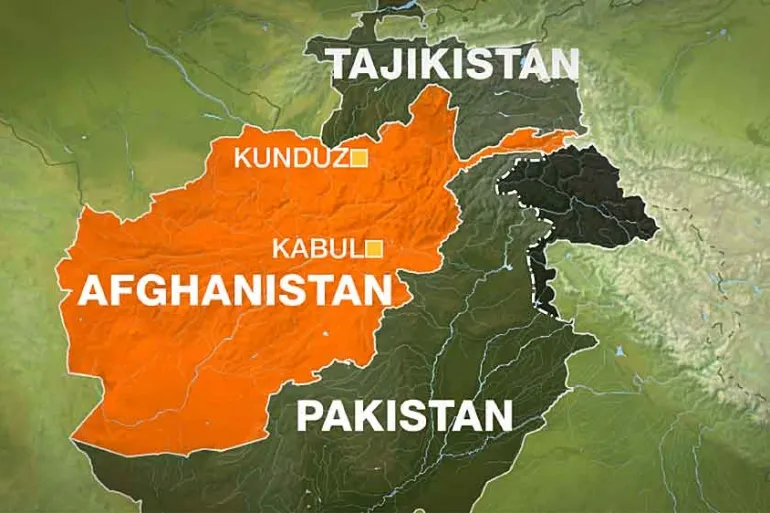Pakistan and Tajikistan share a complex and multifaceted relationship that spans historical, cultural, economic, and strategic dimensions. The two nations have sought to foster ties based on mutual interests and geopolitical realities in South Asia and Central Asia respectively. This relationship has evolved, influenced by regional dynamics, global politics, and internal developments within each country. In this comprehensive analysis, we’ll delve into the various aspects of the Pakistan-Tajikistan relationship, exploring its historical roots, contemporary dynamics, economic cooperation, security cooperation, and prospects.
Historical Background:
The historical ties between Pakistan and Tajikistan can be traced back to ancient times when the region formed part of the ancient Silk Road network. The Silk Road facilitated trade, cultural exchange, and the movement of people between South Asia and Central Asia. However, modern relations between Pakistan and Tajikistan began to take shape after the dissolution of the Soviet Union in 1991. With the emergence of independent Central Asian states, Pakistan sought to establish diplomatic ties with Tajikistan, recognizing the strategic importance of engaging with its neighbors to the north.
Diplomatic Relations:
Diplomatic relations between Pakistan and Tajikistan were established on April 2, 1992, shortly after Tajikistan gained independence. Since then, the two countries have maintained cordial diplomatic ties, marked by high-level visits, exchange of delegations, and cooperation on various international forums. Pakistan has consistently supported Tajikistan’s sovereignty and territorial integrity, while Tajikistan has reciprocated by endorsing Pakistan’s stance on regional and international issues.
Economic Cooperation:
Economic cooperation forms a crucial aspect of the Pakistan-Tajikistan relationship. Despite the geographical distance between the two countries, there exists significant potential for enhancing bilateral trade and investment. Currently, trade between Pakistan and Tajikistan remains relatively modest, primarily consisting of agricultural products, textiles, and pharmaceuticals. However, both countries have expressed a desire to expand trade ties and explore new avenues of economic cooperation. Efforts to improve connectivity through transport infrastructure projects, such as the CASA-1000 power project, have contributed to strengthening economic linkages between Pakistan and Tajikistan.

Energy Cooperation:
Energy cooperation holds immense promise for Pakistan and Tajikistan. Tajikistan possesses abundant hydropower resources, while Pakistan faces energy shortages and seeks to diversify its energy mix. The CASA-1000 project, inaugurated in 2016, aims to transmit surplus electricity from Tajikistan and Kyrgyzstan to Pakistan via Afghanistan. This initiative not only addresses Pakistan’s energy needs but also provides Tajikistan with a lucrative market for its hydropower exports. However, progress on the CASA-1000 project has been hindered by logistical challenges, security concerns, and geopolitical rivalries in the region.
Transport and Connectivity:
Enhancing transport and connectivity infrastructure is vital for deepening economic cooperation between Pakistan and Tajikistan. The two countries are exploring various initiatives to improve road, rail, and air links, thereby facilitating trade and people-to-people exchanges. The proposed Turkmenistan-Afghanistan-Pakistan-Tajikistan (TAP-T) railway project aims to connect Pakistan’s Gwadar Port with Tajikistan via Afghanistan, providing a shorter and more efficient trade route. Additionally, efforts to modernize border crossings and streamline customs procedures are underway to facilitate smoother trade flows between Pakistan and Tajikistan.
Security Cooperation:
Security cooperation between Pakistan and Tajikistan has gained significance in recent years, driven by shared concerns regarding terrorism, extremism, and regional stability. Both countries are members of various regional organizations, including the Shanghai Cooperation Organization (SCO) and the Collective Security Treaty Organization (CSTO), which provide platforms for collaboration on security issues. Pakistan has supported Tajikistan in its efforts to combat terrorism and extremism, offering military training, intelligence sharing, and technical assistance. However, challenges persist due to the complex security landscape in Afghanistan, which directly affects the security situation in both Pakistan and Tajikistan.
Cultural and People-to-People Ties:
Cultural and people-to-people exchanges play a crucial role in fostering understanding and goodwill between Pakistan and Tajikistan. Despite linguistic and cultural differences, the two nations share historical ties and cultural affinities that serve as a basis for cooperation. Educational exchanges, cultural festivals, and tourist exchanges serve to strengthen bonds between the people of Pakistan and Tajikistan, promoting mutual respect and appreciation for each other’s heritage. Efforts to promote Urdu and Tajik language studies, as well as collaboration in the fields of literature, music, and arts, further enrich the cultural ties between the two countries.

Geopolitical Considerations:
Broader geopolitical dynamics, including the role of external actors in the region also influence the Pakistan-Tajikistan relationship. Both countries have sought to balance their relations with other regional powers, such as China, Russia, and Iran, while also maintaining ties with the United States and European Union. The emergence of new geopolitical realities, such as the Belt and Road Initiative (BRI) and the growing influence of China in Central Asia, has prompted Pakistan and Tajikistan to recalibrate their foreign policies to maximize strategic benefits and minimize risks.
Future Prospects:
Looking ahead, the Pakistan-Tajikistan relationship holds immense potential for further expansion and deepening across various sectors. Economic cooperation, particularly in energy, transport infrastructure, and trade, is likely to remain a priority for both countries. Strengthening security cooperation to address common threats and challenges will also be essential, especially in the context of evolving regional dynamics. Cultural exchanges and people-to-people ties can further enhance mutual understanding and friendship between the two nations, laying the groundwork for a durable and mutually beneficial partnership.
In conclusion, the relationship between Pakistan and Tajikistan is characterized by a mix of historical, economic, strategic, and cultural factors. Despite facing challenges and constraints, both countries have demonstrated a willingness to engage constructively and cooperate in areas of mutual interest. By building on existing synergies and exploring new avenues of collaboration, Pakistan and Tajikistan can forge a robust and enduring partnership that contributes to peace, stability, and prosperity in the region.
